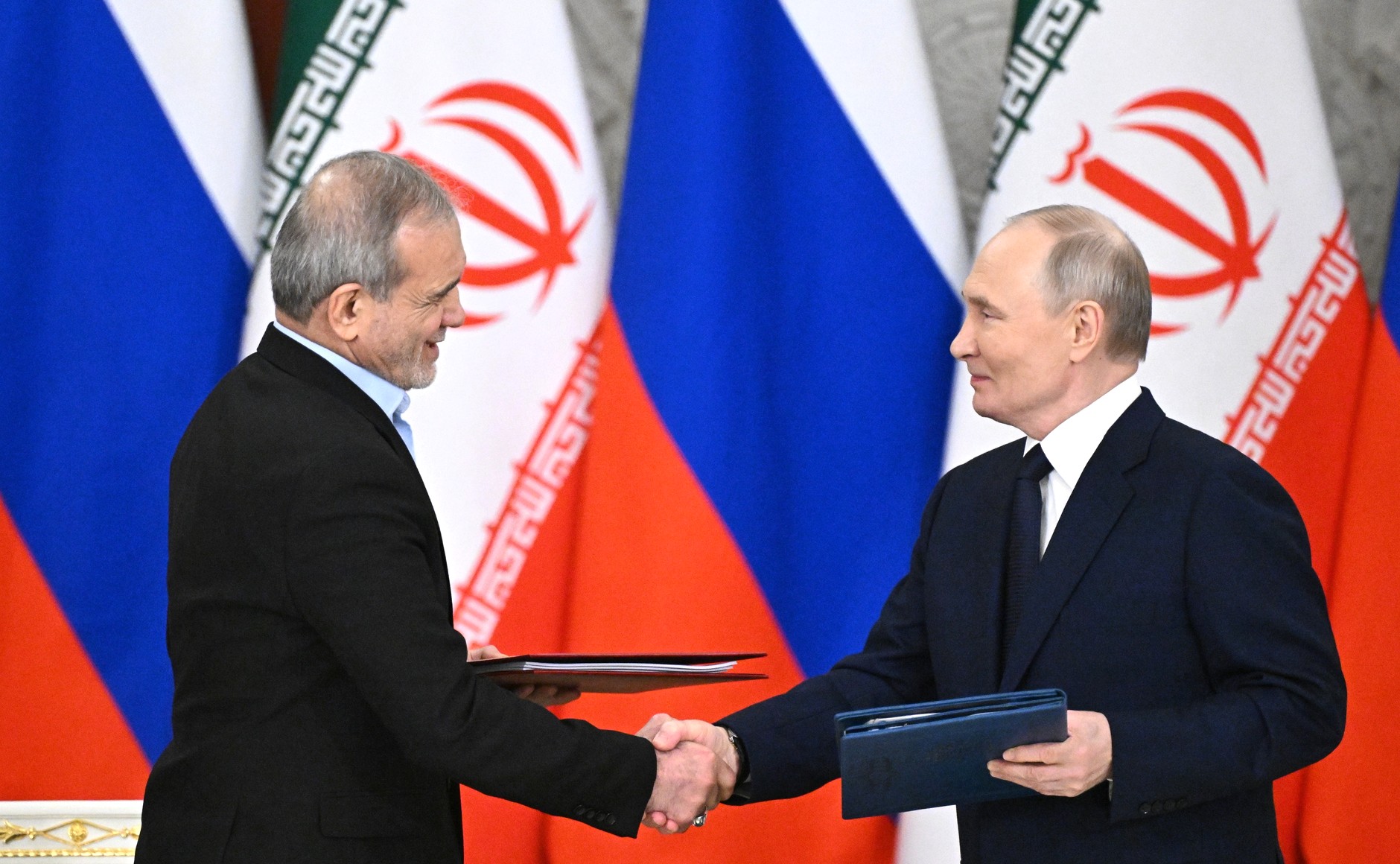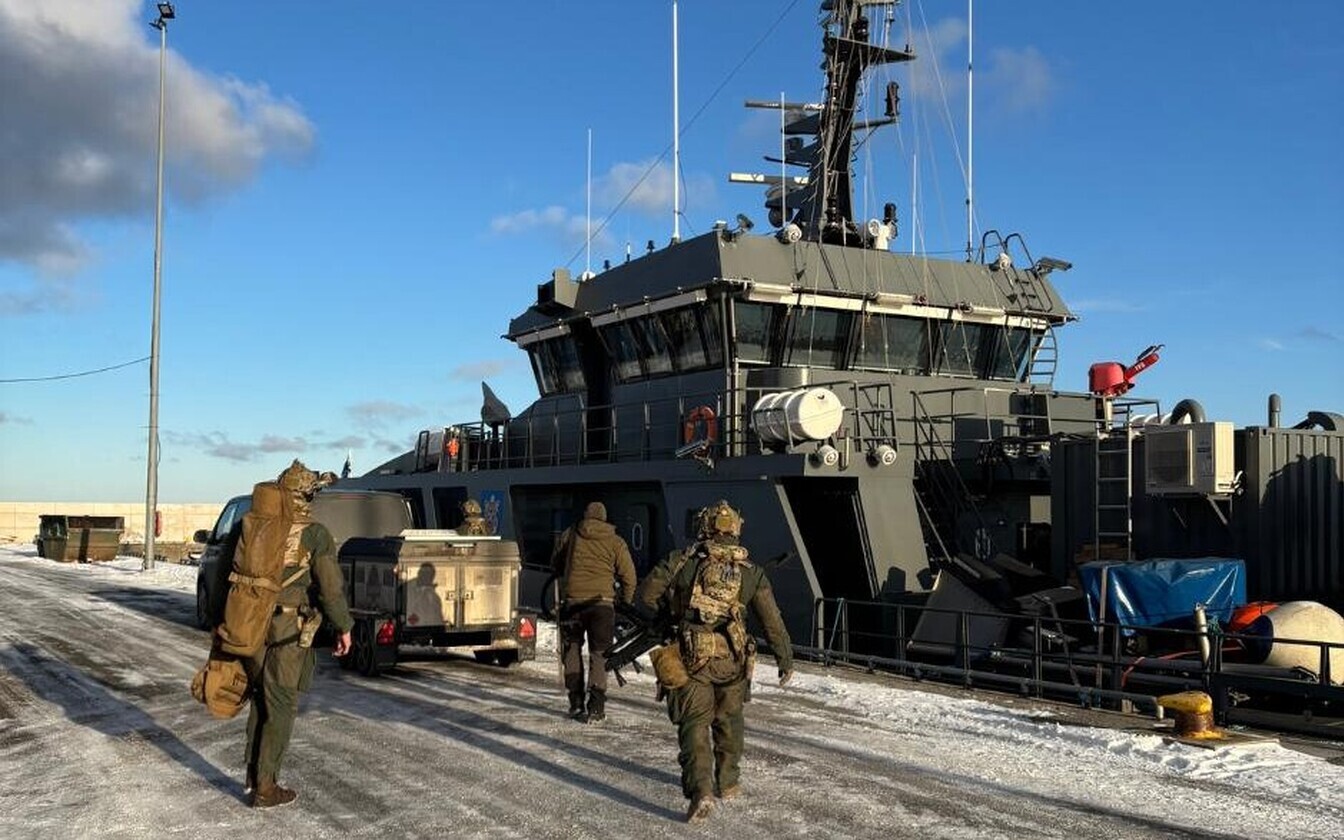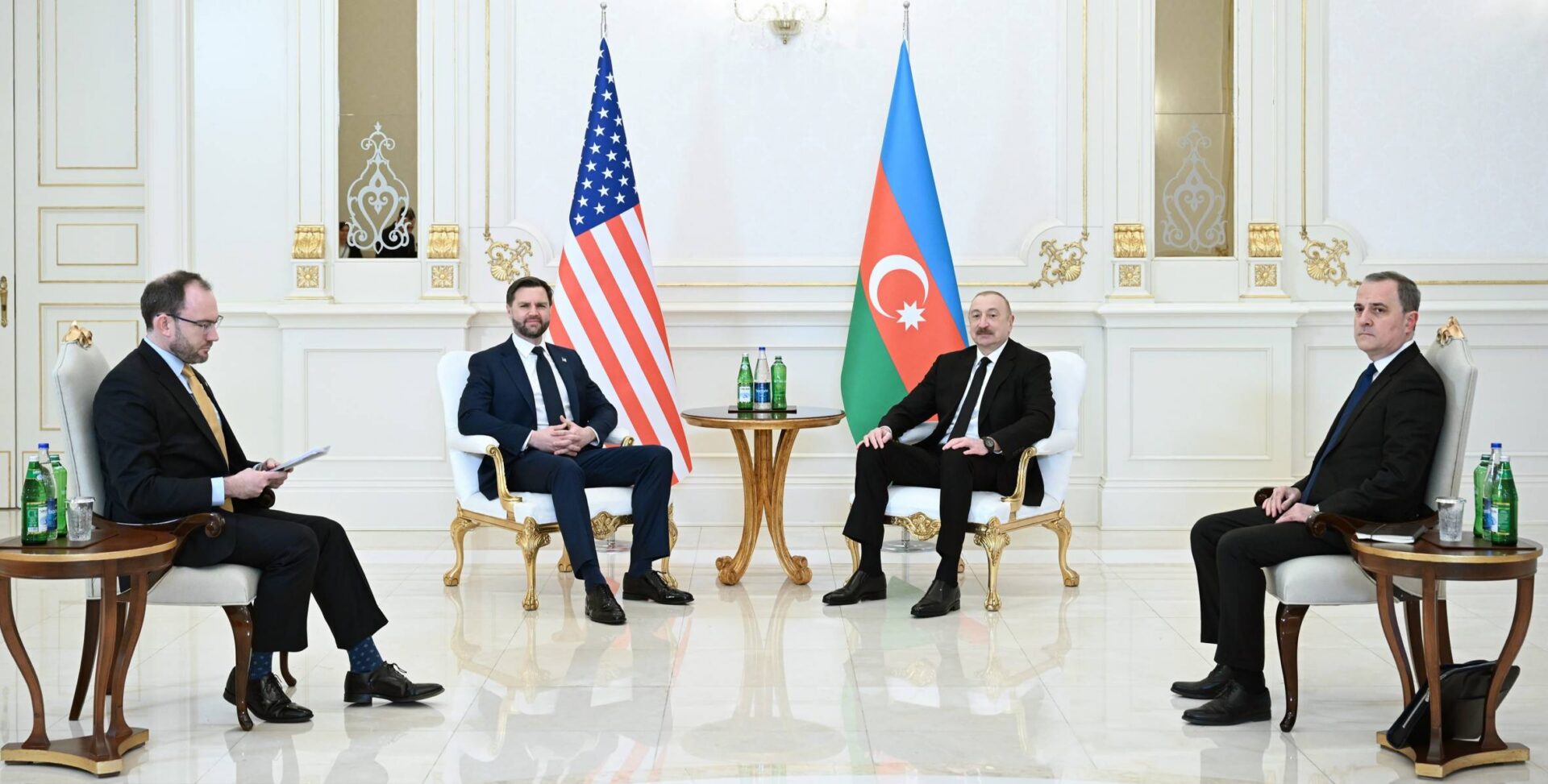
Russia Attempting to Shape Future of Iran’s Nuclear Program
Russia Attempting to Shape Future of Iran’s Nuclear Program
Executive Summary:
- Russia has offered to mediate U.S.–Iran nuclear negotiations, positioning itself as a helpful intermediary with clear interests in securing benefits from any potential agreement.
- Moscow’s involvement in Iran’s nuclear talks would enhance its influence in the nuclear weapons supply chain through proposals to store Iran’s highly enriched uranium in Russia.
- Russia seeks to be a strategic power broker, using its engagement in nuclear diplomacy to assert regional influence and offset its isolation from the West.
Russia is offering to mediate negotiations between Tehran and Washington over Iran’s nuclear program. Russian Foreign Minister Sergei Lavrov told reporters on April 18 that Moscow is “ready to help, mediate, and play any role that would be useful from Iran’s point of view and acceptable to the United States” (Izvestiya, April 18). Russian officials are drawing on its engagement in previous trilateral negotiations, including with Iran, the People’s Republic of China (PRC), and Oman, on the issue of Iran’s nuclear program in a way that positions Moscow as a valuable and necessary actor in reaching a new agreement (Izvestiya, April 9). Following trilateral talks between Russia, the PRC, and Iran, Abolfazl Zohrevand, a member of Iran’s parliamentary Commission on National Security and Foreign Policy, suggested that Moscow and Beijing could act as guarantors of a future agreement between the United States and Iran (RIA Novosti, April 15).
Russian officials claim that Moscow’s motivation for getting involved in Iranian nuclear talks is to ease tensions between Washington and Tehran (Russian Ministry of Foreign Affairs, April 24). Moscow played a crucial role in brokering the 2015 Joint Comprehensive Plan of Action (JCPOA), leveraging its diplomatic ties with Iran and the technical expertise of Rosatom, the state-owned nuclear energy corporation (Center for Energy and Security, August 14, 2015). After the United States withdrew from the JCPOA and Iran progressively scaled back its commitments under the agreement, Rosatom suspended efforts to convert Iran’s Fordow nuclear facility into a medical research center, likely to avoid U.S. sanctions (TASS, November 5, 2019; TVEL, December 6, 2019). Russian President Vladimir Putin condemned the United States’ 2018 withdrawal from the JCPOA, stating that it “not only destabilizes the situation in the region, but is also capable of undermining the nuclear non-proliferation regime.” (President of Russia, June 14, 2019).
Russia’s involvement in any nuclear talks between Iran and the United States would offer certain advantages. One of the most valuable advantages to Russia would be involvement in managing or observing Iran’s stockpile of highly enriched uranium (HEU) (IAEA, September 3, 2024). [1] U.S representatives have recently proposed a potential arrangement whereby Iran’s uranium stockpile would be located in a third country, such as Russia (Meduza; The Guardian, April 15). Iran previously allowed Russia to store the country’s enriched uranium under the JCPOA in exchange for uranium concentrate used in nuclear power plants (TASS, July 7, 2019). Storing Iranian HEU in Russia would reduce the immediate risks of Iran’s nuclear weapons program and increase Moscow’s influence over the process.
Tehran and Moscow often frame their relationship as a partnership, but both states have competing interests across multiple domains and may seek new leverage against each other. Between 2000 and 2007, 85 percent of Iran’s arms imports were from Russia, but Putin later issued a decree suspending military sales unless explicitly authorized by the UN Security Council following the UN Security Council’s 2010 arms embargo (President of Russia, June 9, 2010; TASS, January 25, 2015; United Nations Security Council, June 10, 2016). [2] The Kremlin resumed arms exports to Iran after sanctions expired in 2016, delivering S-300 surface-to-air missile (SAM) systems under a 2007 contract (Rossiiskaya Gazeta, October 13, 2016). Since Russia’s full-scale invasion of Ukraine, defense ties between Russia and Iran have significantly deepened, with Moscow importing Iranian weapons in multiple waves (Vazhnie Istorii, September 14, 2024).
Russia’s offer to mediate between the United States and Iran has been largely ignored despite Moscow remaining active in trilateral discussions with the PRC and Iran (TASS, April 7 [1] [2]). On March 14, the three parties met in Beijing with follow-up talks taking place on April 8 in Moscow (Izvestiya, April 9). According to the joint statement, both Russia and the PRC called for an end to all “illegal unilateral sanctions” and “any actions that could lead to escalation” (Russian Ministry of Foreign Affairs, March 14). According to Russia’s Permanent Representative to International Organizations in Vienna, Mikhail Ulyanov, Russia’s cooperation with Iran and the PRC allows it to “cool down some hotheads to avoid ill-considered, drastic steps” (Izvestiya, April 9).
The second round of trilateral talks between Russia, the PRC, and Iran in Moscow was followed by Russia’s official ratification of the Treaty on Comprehensive Strategic Partnership with Iran (RIA Novosti, April 21). Although Russia and Iran agreed to the deal in January, the timing of its signing underscores Russia’s commitment to supporting Tehran amid a reportedly two-month deadline from the Trump Administration to reach a new nuclear deal mounting (RBC, March 19). Shortly thereafter, Iran’s Foreign Minister Abbas Araghchi expressed willingness to resume dialogue with the “E3”—France, the United Kingdom, and Germany (Kommersant, April 24). In this context, Russia and China appear to play a crucial role in shaping Iran’s opening stance in negotiations with the United States and Europe, offering both public diplomatic backing and private reassurances to resist new sanctions regimes.
Russia’s messaging regarding cooperation with the United States on an Iranian nuclear deal remains mixed. Putin’s press secretary, Dmitry Peskov, declined to comment on the United States’ proposal to store Iran’s HEU in Russia (RIA Novosti, April 15). At the same time, Russia maintains access to U.S. decision-makers through Putin’s frequent meetings with the United States Special Envoy to the Middle East, Steve Witkoff, primarily in relation to Russia’s war against Ukraine (see EDM, April 14, 28). Peskov claims that Putin and Witkoff did not discuss Iran’s nuclear program (RIA Novosti, April 16).
Russia is positioning itself not as a neutral mediator but as a power broker with clear strategic interests. While its role in the negotiations may be limited by the United States’ preferences for direct talks with Tehran, Russia’s parallel diplomacy allows it to remain relevant, shape regional dynamics, and cultivate potential leverage in the region. Moscow’s pursuit of influence in Iran’s nuclear deal ultimately reflects its broader ambition to convert regional engagement into a lasting strategic advantage.
Notes:
[1] Uranium with an enrichment level of 20 percent or more, which is essential for nuclear weapons.
[2] The Decree was later amended to allow for sales of S-300s (President of Russia, April 13, 2015).


